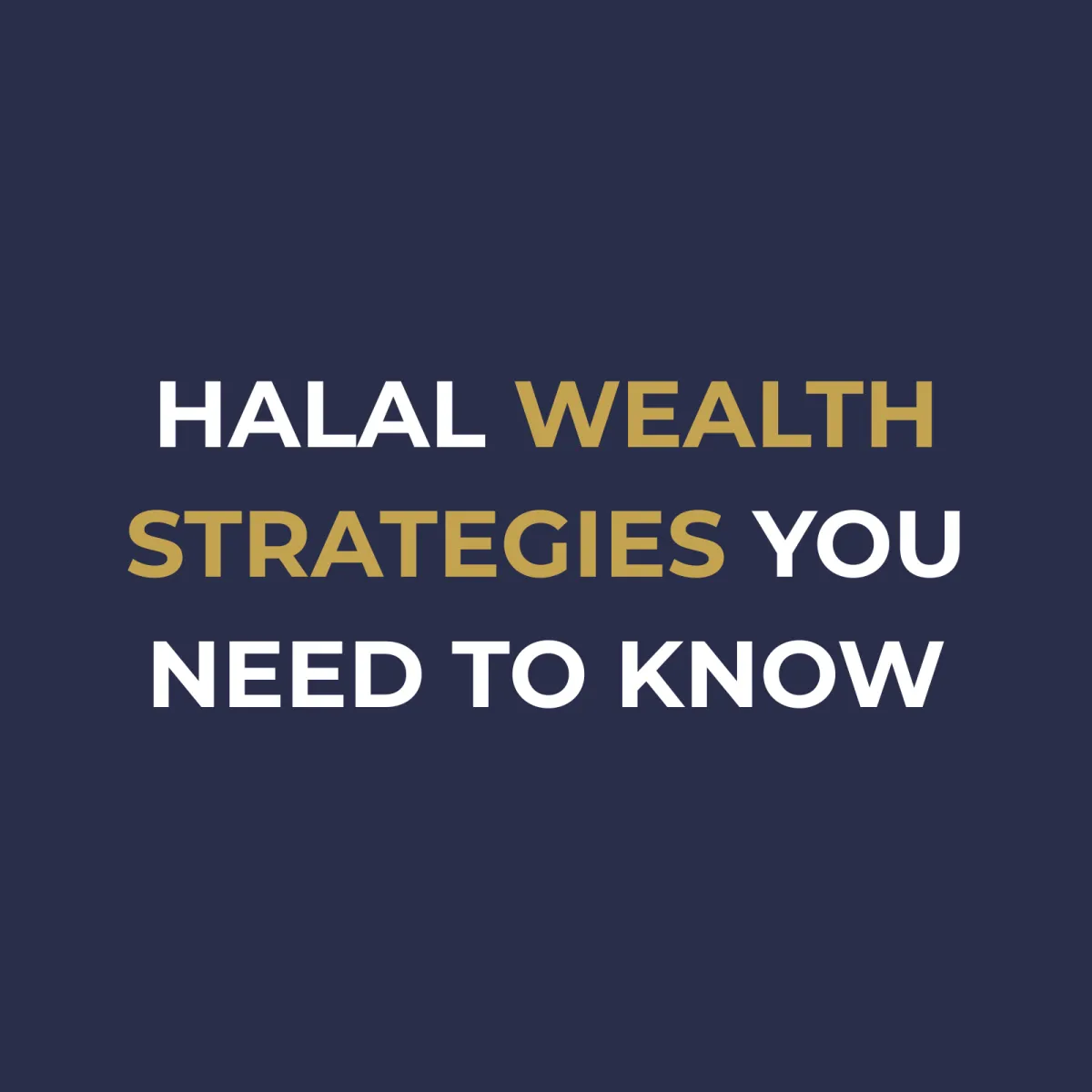
Halal Wealth Strategies Every Muslim Family Needs to Know
The Long Game of Halal Wealth: How to Grow, Protect, and Pass It On
I wanted this conversation to be real. No jargon. No hype. Just practical guidance for Muslims here in America who are trying to live debt-free, invest responsibly, and build legacies rooted in barakah.
At ISNA Chicago 2025, I had the chance to sit down with my brother Ibrahim Khan. For those who don’t know, Ibrahim is the co-founder of Cur8 Capital and Islamic Finance Guru (IFG), alongside Mohsin Patel. They’ve become trusted voices in the space of Sharia-compliant investments and Muslim financial education.
Here’s what stood out from our talk:
Start With the End in Mind
I asked Ibrahim what advice he would give to young Muslims in America just starting their financial journey. His answer was simple but powerful: know where you are going.
Too many of us, he said, just collect random investments: some stocks, a little crypto, maybe a savings account. But when you step back, it doesn’t fit together. It’s just noise.
Ibrahim’s point hit home. If you don’t know where you want to be in 5 or 10 years, how will you get there? Wealth without direction is just motion.
Invest in Yourself First
I pressed him on timing. With so much instant gratification around us, how do we balance short-term and long-term?
He told me something I’ll never forget: between ages 16 and 23, the best investment isn’t in markets, it’s in yourself. Education, certifications, skills, building your craft. That’s the highest-return move you can make at that age.
We chase flips, side hustles, and quick wins. But Ibrahim reminded me that barakah begins when you strengthen your foundation.

Debt and Lifestyle Creep: The Silent Traps
I couldn’t leave this out, because debt is one of the biggest issues I see in our community. Credit cards, financed cars, and “buy now, pay later” plans are pulling us in.
So I asked Ibrahim about it directly: what’s the impact of consumer debt?
His answer was blunt. Debt is a black hole. A car loses value the day you drive it. Designer clothes won’t build you wealth. But worse than that, putting money into debt drains your future. Instead of growing assets, you’re financing liabilities.
And as Muslims, we know what our Prophet ﷺ warned. Even the most righteous could be held back in the grave by unpaid debts.
Build Habits Before Portfolios
I asked him how to overcome the fear so many people feel when they start investing. Should you wait until you’ve got $50,000 saved before you make a move?
His answer: absolutely not. Start with $1,000. Start with $500. Even start with $100.
It’s about building habits, not building empires overnight. Like learning to drive, the first lap around the parking lot is the hardest. Once you get moving, confidence grows.

You Don’t Need Millions to Begin
We also tackled a common misconception, that halal investing is only for the wealthy. Ibrahim reminded me that today you can begin with small amounts. The point is not the size, but the consistency and the discipline.
Diversification Matters
I asked him about the global landscape. Is America still the best place to invest?
Ibrahim said something important: the era of “American exceptionalism” is over. That doesn’t mean America is weak. It means the world has changed.
Muslims here should think seriously about diversification. Spread across currencies. Spread across geographies. Spread across asset classes. Don’t tie your entire future to one market.
Protecting What You Build: Legacy and Amanah
Finally, I brought up a topic close to my heart: protection. We work so hard to earn and grow our money, but what happens if Allah calls us back suddenly?
I asked Ibrahim what estate planning and legacy meant to him. He said it’s vital. Too many people put in years of effort only to see their wealth quickly lost after their death because they never planned.
That’s when I shared something with him that surprised him. In the U.S., through Ikhlas Insurance Group, we’ve built one of the first truly Shariah-compliant life insurance models. He admitted they don’t even have that in the UK yet.
Our conversation wasn’t about selling a product. It was about amanah. If you have a mortgage, loans, or children relying on you, protecting them isn’t fear, it’s responsibility. You don’t want your loved ones to inherit both grief and debt.
As I often say, halal wealth isn’t only about growing assets. It’s also about protecting them. It’s about ensuring your family is safe, your debts are cleared, and your legacy is secure.
FAQ: Lessons From ISNA Chicago
Q1: What is the most important first step for young Muslims in finance?
Set a clear destination. Know where you want to be in 5 to 10 years, then work backward.
Q2: Do you need a lot of money to start halal investing?
No. Start small. Even $100 or $500 can build the habit and confidence to grow over time.
Q3: Why is protection such a key part of wealth building?
Because wealth without protection is fragile. If something happens to you, your family could inherit your debts instead of your legacy. Planning with halal protection is part of fulfilling your amanah.
Profit with purpose. Wealth without compromise. This isn’t a business. It’s a movement.
If this message resonates with you and you’re ready to build real, halal wealth with purpose, subscribe to our newsletter below.
Get insights, strategies, and community stories delivered straight to your inbox — and take the first step toward a future built on faith and freedom.
